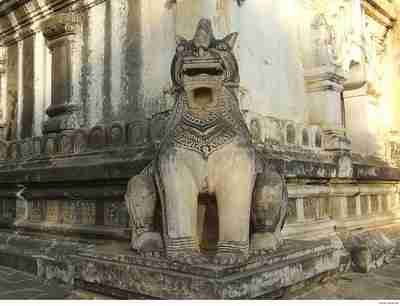Myanmar can be described as a geographical springboard for India’s Act East Policy since it is a gateway for India to establish land link with ASEAN. It also becomes a wall if the relations are disrupted due to internal and external influences.
Myanmar shares 1643 km land borders with the North eastern states of India and also shares approximately 725 km maritime boundary with India in the Bay of Bengal. Prosperity and instability flow both ways if relations between the two nations are not driven by pragmatism and constructive engagement. The bottom line of building strong and resilient relations is that it must remain steady irrespective of change in government in India or in Myanmar. Regardless of who is in power in Myanmar, its strategic significance to India will remain unchanged.
Whenever India took moral high ground in engaging with military rulers in Myanmar, China made greater inroads and reduced India’s space to consolidate relations with them.
There is a need to understand why India-Myanmar relations have remained subordinate to China-Myanmar relations. One plausible answer is that China has always maintained consistency in their relationship with Myanmar whereas India has been reluctant to forge deeper engagement with Myanmar when the military junta was in power. Obsession of the Indian political leadership to promote democracy in the past has led to the marginalisation of relations with Myanmar.

As a result, the relations have remained uneasy, especially with military rulers. Taking moral high ground has caused some kind of disruption in relations to take it to the next level of strategic partnership. Author Rajiv Bhatia maintains that China and India will remain actively engaged in “competing with each other in order to expand their areas of influence in Myanmar”.[1]
Whenever India took the moral high ground in engaging with military rulers in Myanmar, China made greater inroads and reduced India’s space to consolidate relations with them. It is historically proved that no matter how much pressure was brought upon Myanmar by China, it didn’t actively support the anti-India movement from within. It is true that there are insurgent camps in border areas of Myanmar but most of these camps are in grey territories with very little influence of Myanmar Army in inhospitable Northern territories. It is imperative for India to maintain constructive engagement with the Government of Myanmar, irrespective of military or civilian government in power.
Why Myanmar is important to India
Change in government in Myanmar has come at a stage where it will be pushed to embrace China further if India quietly rescinds from providing support to the government of Myanmar. This is a crucial period even for Myanmar, where it is deeply engaged with the internal instability due to threat posed by insurgent groups in Rakhine State and Northern Territories, where there are approximately 26 indigenous insurgent groups operating with the covert and overt support of China and Chinese proxies. China has armed these insurgent groups to use them as a leverage against Myanmar Government so as to influence the decision making and internal politics of Myanmar.
As per, former ambassador G. Parthasarathy, China even has an ambassador to liaise with the armed groups operating along and across the China-Myanmar border.[2] Myanmar at this juncture requires medical support to fight pandemic and economic support to stabilise economy post-Covid 19 impacts. Today, Myanmar needs India more than it needs China because the regime in Myanmar understands that every assistance that comes from China is a step further in getting to the Chinese debt trap. However, the same is not the case with India because India has not taken advantage of Myanmar’s isolation by the global community. Thus India and Myanmar relations are at a crucial and critical stage to pursue vital national interests of respective nations.
China’s interest in Myanmar is strategic and economic in nature. The country is crucial to China to ease her‘Malacca predicament,’ by giving access to the Bay of Bengal through the land route. China is also eyeing huge natural resources that it wants to acquire and become sole proprietor. Myanmar also offers China a long term investment opportunity that it can reap for posterity.
One must remember that China-Myanmar Economic Corridor (CMEC) is as important to China as China-Pakistan Economic Corridor (CPEC). China sees India as an impediment to expanding its footprints in Myanmar and the Bay of Bengal through land route. In view of the foregoing, China is determined to keep India out of Myanmar and at this stage, if India gives a pause in bilateral relations, Myanmar will be pushed deeper into the Chinese embrace.

Similarly, India is at an advanced stage of concluding the crucial Naga Peace Accord that could get derailed if China plays spoilsport. We cannot overlook the fact that China is already host to Paresh Barua faction of ULFA and NSCN (IM) core group in Yunnan.
Phunting Shimrah, a former self-styled commander-in-chief of NSCN(IM) has already declared that if talks fail, they will restart their campaign all over again. This he could not have said without the support of external agencies. In addition, China could give impetus to cause instability in the Northeast by extending support to other Indian insurgent groups through indigenous insurgent groups of Myanmar.
There have been reports that Arakan Army is being supplied with Chinese weapons. Arakan Army was reported to have kidnapped five Indian Engineer task force members working on Kaladan Multi-Modal Trade and Transit (KMMTT) project linking Kolkatta with landlocked North-eastern states. If the equation with military rulers of Myanmar and New Delhi is upset, Myanmar may quietly stall progress on KMMTT and the Asian highway connecting India with South-East Asian countries.
But the biggest worry for India at this stage is to do a tight rope walk by maintaining relations with Myanmar Army and also not ignore completely the National League for Democracy, the main political party led by Aung San Suu Kyi, because the National League for Democracy has gained massive support from the people post-military takeover.
India’s approach
India must take actions to ensure that China is not able to encroach upon India’s strategic space and disrupt India’s Act East Policy. General Min Aung Hlaing would like to cling to power; therefore, he would look for all possible support either from China or India to keep the democratic government out of power. Though there is rising opposition against the military takeover, India must steer clear of the internal upheaval. If India takes the moral high ground and demands to recall the deposed government of Aung San Suu Kyi, it will embolden Chinese authorities to make deeper inroads and exploit current vulnerabilities.
Myanmar requires Covid19 vaccines and India should ideally come forward to help Myanmar before China steps in. India must continue to pursue all current and planned developmental projects without any pause. There should be no break in bilateral trade and the focus should be to maintain the same pace as was during the previous regime.
This is the time for India to pursue military diplomacy to send a message that change of regime is an internal matter of Myanmar. In any case, more often than not, it is the Myanmar Army that is more important for India, to ensure stability in the North-eastern states and prevent external interference. India should hence exploit the potential of military diplomacy and good bonhomie between two armies. India should either depute the Dimapur Corps Commander who is responsible for the Myanmar border or the Eastern Army Commander to visit their country to discuss cooperation with their Army to deal with Indian insurgent groups operating from both sides of the International Boundary.
On the sidelines, of course, cooperation on the economic and pandemic front can be discussed. This military delegation may reassure the military government that India will continue to pursue all developmental projects. This will break the ice and will not also violate any political grandstanding. Thus, military diplomacy should ideally take the centre stage and in all probability, it will be appreciated by the current dispensation of Myanmar.
Conclusion
This relationship should not be guided by moral grandstanding but should be guided by national security consideration. The relationship cannot be threatened by political-ideological dissonance. Political ideology may be for internal governance but bilateral relations are often guided by mutual interests that are permanent in nature. Though India may suggest that Myanmar Army will reinstall democratic government once the situation stabilises to meet the aspirations of the people, but beyond that India should not treat Myanmar military regime as untouchables.
[1] Meera Kumar, Shifting India-Myanmar relations, Gateway House, March 30, 2016,
[2] G Parthasarathy, The strategic importance of Myanmar, The Hindu Business Line, November 02, 2020


